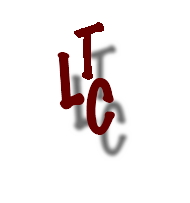"The wandering thread" : on the rationality of the novel
Résumé
Fiction, according to Aristotle, is an arrangement of actions, linked by necessity or verisimilitude. It makes up a whole, the arrangement of which is to be opposed to the empirical succession of things as they happen. In her essay "Modern Fiction", Virginia Woolf reverses the opposition : to the false tyranny of the plot, she opposes the truth of life, meant as a never-ending shower of atoms. But how can this shower of atoms be turned into the linking principle of fiction? Flaubert had interwoven the causal logic of plots and the logic of sentences generating events into a continuum of coexisting sensory events. Virginia Woolf has one of her characters speak of "a wandering thread lightly joining a thing to another". That link however proves to be but a dream. It is impossible to shape fiction into the expression of a "luminous halo" enveloping the continuum of sensations. A form of compromise between diverging logics is always needed. While the second part of To the Lighthouse reads like a halo of sensory events, clearly cut off from the family circumstances which make the ordinary subject-matter of fiction, the third part narrates the story of a reconciliation between father and son, which is also a reconciliation with the paternal tyranny of the plot. Likewise the course of the day in Mrs Dalloway cannot be shaped into the mere expansion of Clarissa Dalloway's movements and perceptions. To construct the book, the happy course of the day must be opposed with the tragedy of Septimus, "the madman", who turns the sensory events into the signs of a new religion, and thus ushers back the tyranny of the plot at the very moment when he gives way to the tyranny of doctors. The ontology of modern fiction is monist. But its practice cannot be but dialectical.
Mots-clés
Woolf, Virginia; Fiction; Link; Causality; Succession; Coexistence; Sensory events.

